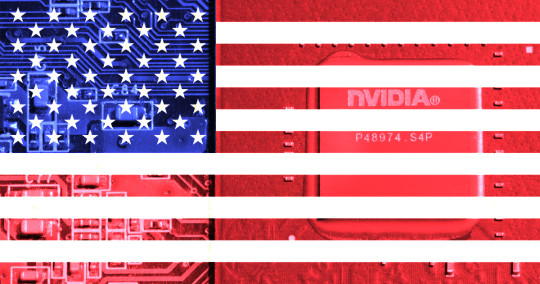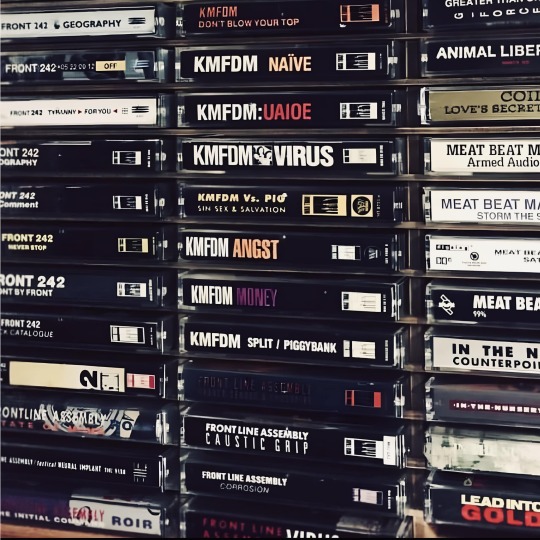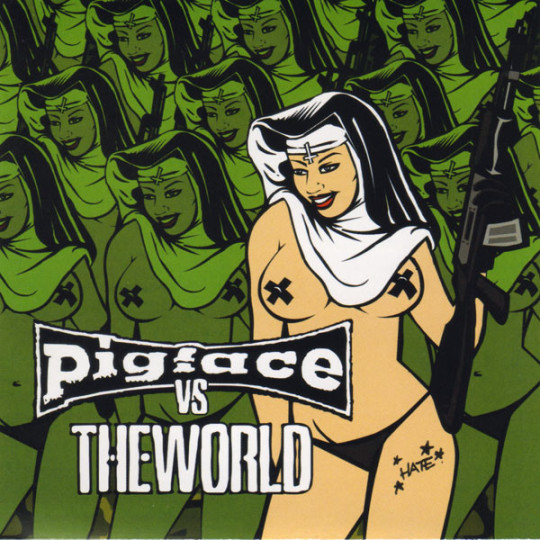#industry-leading
Text
Zendesk to Acquire Ultimate
Zendesk announced it will acquire Ultimate, an industry-leading provider of service automation, to deliver the most complete AI offering for customer experience (CX) in the market1. As unprecedented demand for AI drives up the speed and frequency of customer engagement, AI agents push beyond traditional bot capabilities to help brands transform CX into a competitive advantage. With Ultimate,…

View On WordPress
#acquisition#AI#AI agents#analytics#automation#autonomous#backend system#bot capabilities#business growth#chatbots#competitive advantage#control#cost-effectiveness#creativity#customer engagement#customer experience#customization#CX#Daniel Newman#efficiency#Excellence#Flexibility#Future#game changer#human agents#human touch#Hybrid#industry-leading#innovation#intelligence
0 notes
Text
you have to go to work so you can pay for your doctor, who is not taking your insurance right now, and if you say i can't afford the doctor's you are told - get a better job. it is very sad that you are unwell, yes, but maybe you should have thought about that before not having a better job.
(where is the better job? who is giving out these better jobs? you are sick, you are hurting - how the hell are you supposed to be well enough for this better job?)
but you go to the doctor because you had the nerve to be hurt or sick or whatever else. and they tell you that it is because you have anxiety. you try your best. you are a self-advocate. you've done the reading (which sometimes pisses them off worse, honestly). you say it is actually adding to my anxiety, it is effecting my quality of life. so they say that you are fat. they say that all young people have this happen to them, isn't it a medical marvel! they say that you should eat more vegetables. they say that you probably just need to lose a little more weight, and that you are faking it for attention.
(what attention could this doctor possibly give? what validation? that's their fucking job, isn't it?)
there is always a hypochondriac, right. someone always tells you about a hypochondriac. or someone who is unnecessarily aggressive during the worst days of their life. or someone looking "for a quick fix". or some idiot who wasn't educated about how to properly care for themselves who just abandons their treatment. and again, the hypochondriac, the overly-cautious hysteric. these people don't deserve to be treated like humans (right), and since you might be one of these people, you also don't get treated like a human. because those people can really fuck with the system, you now have to pay for it. and besides. you're actually probably faking it.
(more often than not, you find a 2:1 ratio of these stories. for every "hypochondriac", there are 2 people who knew something was wrong, and yet nobody could fucking find it. the story often ends with pointless suffering. the story often ends with and now it's too late, and it's going to kill me.)
you are actually just making excuses. someone else got that procedure or that diagnosis and he's fine, you should be fine too. someone else said they watched a documentary about other inspirational people with your exact same condition, maybe you should be inspirational, too. you're just too morbid. your pain and your experience is probably just not statistically concerning. it is all self-reported anyway, and you're just being a baby.
(once, while sitting down in the middle of making coffee, you had the sudden, horrible thought - i could kill myself to make the pain stop. you had to call your best friend after that. had to pet your dog. had to cry about it in the shower. you won't, but that moment - god, fuck. the pain just goes on and on.)
you know someone who went in for routine surgery and said i still feel everything. they told her to just relax. it took her kicking and screaming before they figured out she wasn't lying - the anesthetic drip hadn't been working. you know someone who went in for severe migraines who was told drink water and lose weight. you know someone who was actively bleeding out and throwing up in the ER and was told you're just having a bad period.
in the ER there are always these little posters saying things like "don't wait! get checked today!" and you think about how often you do wait. how often the days spool out. you once waited a full week before seeing the doctor for what you thought was a sprained wrist. it had actually been broken - they had to rebreak it to set it.
but you go into the doctor. the problem you're having is immediate. the person behind the counter frowns and says we're not taking your insurance. you will be paying for this out-of-pocket.
they send you home with tylenol and a little health packet about weight loss or anxiety or attention deficit. on the front it has your birthday and diagnosis. you think about crying, and the words swim. it might as well say go fuck yourself. it might as well say you're a fucking idiot. it might as well say light your money on fire and lie down in it. and the entire fucking time - the problem persists.
it's okay. it's okay, it's just another thing, you think. it's just another thing i have to learn to live with.
#spilled ink#warm up#can you tell what i'm mad about today specifically#i will say that there are a LOT of things that go into this. like a lot. this is ungendered and unspecific for a reason#it isn't just sexism. it's also racism. and ableism. and honestly classism.#and before a healthcare professional reads this as a personal attack: i understand ur burnt out#we are ALSO burnt out. your situation is also dire. this is not an attack on you.#this is a commentary on the incredible amounts of bigotry that lie at the heart of capitalism#where people have to pay money out of pocket to be told to fuck off.#your job is important. so is our humanity. and if you cannot accept that people are fucking mad as hell#at the industry - you are probably not listening .#anyway at some point im gonna write a piece about sexism specifically in medical shit#but i don't want terfs clowning in it bc they can't understand nuance#> it is true that ppl w/a uterus are more likely to experience medical malpractice & dismissal globally#> it is also true that trans people experience an equally fucked up and bad time in the medical field#> great news! the medical industrial complex is an equal opportunity life ruiner :)#(if you find it necessary to go into a debate about biology while discussing medical malpractice#i want to warn you that you're misunderstanding the issue. because guess what.#cis MEN might experience this. particularly black men. particularly disabled men.#so YES having a uterus can lead to more trouble for you. but this happens a LOT.#instead of fighting those ALSO experiencing your pain.... try working WITH them.#which btw. is like. actual feminism.)
2K notes
·
View notes
Text
Infinity Train - one of the first series Warner Brothers erased for tax write-offs, despite receiving critical acclaim
Scoob: Holiday Haunt - shut down for tax write-offs, even though it featured stars like Andre Braugher, Ming-Na Wen, and Mark Hamill and was said to be "practically finished"
Coyote vs Acme - looking to be shut down and getting a tax write-off, despite being a James Gunn movie (like him or hate him, his name is big in Hollywood) with amazing reviews from test audiences
Now, it's Rooster Teeth - shut down after over 20 years, with many like Casey Lee Williams (the woman in charge of the RWBY soundtrack) finding out the news via Twitter
I think it's safe to say that David Zaslav doesn't appreciate the art of animation.
#infinity train#rooster teeth#rwby#coyote vs acme#david zaslav#i swear this guy is leading the charge in tearing down the animation industry in the west#scoob: holiday haunt
468 notes
·
View notes
Text
Irondad fic ideas #130
You know that trope where SI employees call Peter "Stark Jr."?
Fic where Tony learns about this and loves it. One night, at one of their weekly Ironfam dinners, he gleefully brags about it in front of May
In retaliation, May says to Tony, "Okay, Parker Sr."
No angst miscommunications, just hilarity. Everyone knows this is about the honor of being included in each other's families
#irondad fic ideas#irondad and spiderson#ironfam#now when tony is acting extra fatherly rhodey happy and pepper all call him mr. parker#when peter is being confident or dramatic they all call him mr. stark#peter as he gets home: if i have to study for one more minute i will DIE. i will HURL MYSELF INTO THE SUN.#may: what happened?#happy: mr. stark is not enjoying his mandatory sat prep time#when tony leaves a meeting in a rush because midtown called:#pepper accidentally on instinct: sorry mr. parker had urgent business to attend to#tony stark#peter parker#may parker#if this leads to conspiracy theories of truly epic proportions what of it?#iron dad and spider son#irondad#iron dad#spiderson#spider son#stark industries#queueueueue#weekly reminder that i love you all but am too busy to be human :)#fic ideas still postponed but you can send asks if you want i just won't see them for a while#see announcements
2K notes
·
View notes
Text
One thing my brain keeps going back to about Pacific Rim (besides the rad giant robots) is the whole existence of kaiju organ harvesters and their implications.
Like, you have Hannibal Chau, a bizarre and interesting character, but we’re presented with a black market operation that seems mostly interested in the “alternative medicine” uses of kaiju parts.
But my brain demands to know: what does the corporate kaiju harvesting industry look like? Sure kaiju blood is toxic, but there are plenty of toxic materials that have useful applications. Are there chemical companies studying kaiju organs? Big-Pharma jumping on the kaiju bone-powder bandwagon? Are bio-tech firms studying kaiju hide to make tougher materials? Agribusinesses clamoring to acquire kaiju crap for fertilizer?
I’m picturing something like the age of whaling, when humans hunted giant animals and carved them up to feed insatiable industries. Whale-oil lighting lanterns for entire cities, whale-bone being used in everything from knick-knacks, tools, umbrellas, and corsets. Ambergris alone was used in perfumes, medicines, cooking. It was even added to wine as an aphrodisiac.
We glimpsed how kaiju affected pop-culture. Now picture a kaiju smashing a city, but the stock market going up for construction companies (rebuilding the cities), vulture real estate (buying the destroyed land cheap), and all the other corporations that profit from the systematic dismantling of a kaiju corpse and making money off of its parts. Sure, a city was roughed up and who knows how many thousands are dead, but it’s a better windfall when a kaiju makes landfall. It’s always less profitable when jaegers kill them too quickly; sea-based extractions are so much more expensive.
Imagine entire industries, entire economies that don’t just make money from the devastation of kaiju attacks, but grow dependent on them. And then the laws, the squabbles over those valuable, resource-rich kaiju corpses. If a kaiju attacks one country but keeps rampaging and is killed in the country next door, who has claim over the body? The party who was damaged more by it or the country where the corpse physically is? Bidding wars over “cleanup” contracts that cut corners and are only interested in collecting those sweet, sweet, kaiju parts as fast as possible, even if their official mandate is supposed to be the safe removal and cleanup of a toxic substance.
Once jaegers started getting efficient at killing kaiju, the people with all the money became less interested in solving the problem of kaiju attacks and switched to merely managing the industries that kaiju-killing feeds.
What? You want to put more resources into R&D to try and close the Breach? Whatever for? The kaiju comes out, jaegers kill it, and the “host country” gets the proceeds from the kaiju’s body. It’s a win-win for everyone. Why waste time, money, and effort solving a problem that isn’t a problem anymore?
Everything is under control.
#Sorry Long Post#Nerd Rant#Pacific Rim#Kaiju#Hannibal Chau#Kaiju Harvesters#Worldbuilding#Capitalism#an entire kaiju-industrial complex#DARPA tech and military budgets build the jaegers#don't try to tell me that there isn't a entire cabal of corporations profiting off of kaijus beyond just simple toys and marketing#(though that also leads me to wonder WHO exactly has the patent on kaiju?#are they public domain or does the PPDC and the UN have an IP on the kaiju they identify and name???#there's nothing wrong with me I'm normal I swear
2K notes
·
View notes
Text
The CHIPS Act treats the symptoms, but not the causes

If you'd like an essay-formatted version of this post to read or share, here's a link to it on pluralistic.net, my surveillance-free, ad-free, tracker-free blog:
https://pluralistic.net/2024/02/07/farewell-mr-chips/#we-used-to-make-things

There's this great throwaway line in 1992's Sneakers, where Dan Aykroyd, playing a conspiracy-addled hacker/con-man, is feverishly telling Sydney Poitier (playing an ex-CIA spook) about a 1958 meeting Eisenhower had with aliens where Ike said, "hey, look, give us your technology, and we'll give you all the cow lips you want."
Poitier dismisses Aykroyd ("Don't listen to this man. He's certifiable"). We're meant to be on Poitier's side here, but I've always harbored some sympathy for Aykroyd in this scene.
That's because I often hear echoes of Aykroyd's theory in my own explanations of the esoteric bargains and plots that produced the world we're living in today. Of course, in my world, it's not presidents bargaining for alien technology in exchange for cow-lips – it's the world's wealthy nations bargaining to drop trade restrictions on the Global South in exchange for IP laws.
These bargains – which started as a series of bilateral and then multilateral agreements like NAFTA, and culminated in the WTO agreement of 1999 – were the most important step in the reordering of the world's economy around rent-extraction, cheap labor exploitation, and a brittle supply chain that is increasingly endangered by the polycrisis of climate and its handmaidens, like zoonotic plagues, water wars, and mass refugee migration.
Prior to the advent of "free trade," the world's rich countries fashioned debt into a whip-hand over poor, post-colonial nations. These countries had been bankrupted by their previous colonial owners, and the price of their freedom was punishing debts to the IMF and other rich-world institutions in exchange for loans to help these countries "develop."
Like all poor debtors, these countries were said to have gotten into their predicament through moral failure – they'd "lived beyond their means."
(When rich people get into debt, bankruptcy steps in to give them space to "restructure" according to their own plans. When poor people get into debt, bankruptcy strips them of nearly everything that might help them recover, brands them with a permanent scarlet letter, and subjects them to humiliating micro-management whose explicit message is that they are not competent to manage their own affairs):
https://pluralistic.net/2021/08/07/hr-4193/#shoppers-choice
So the poor debtor nations were ordered to "deregulate." They had to sell off their state assets, run their central banks according to the dictates of rich-world finance authorities, and reorient their production around supplying raw materials to rich countries, who would process these materials into finished goods for export back to the poor world.
Naturally, poor countries were not allowed to erect "trade barriers" that might erode the capacity of this North-South transfer of high-margin goods, but this was not the era of free trade. It wasn't the free trade era because, while the North-South transfer was largely unrestricted, the South-North transfer was subject to tight regulation in the rich world.
In other words, poor countries were expected to export, say, raw ore to the USA and reimport high-tech goods, with low tariffs in both directions. But if a poor country processed that ore domestically and made its own finished goods, the US would block those goods at the border, slapping them with high tariffs that made them more expensive than Made-in-the-USA equivalents.
The argument for this unidirectional trade was that the US – and other rich countries – had a strategic need to maintain their manufacturing industries as a hedge against future geopolitical events (war, but also pandemics, extreme weather) that might leave the rich world unable to provide for itself. This rationale had a key advantage: it was true.
A country that manages its own central bank can create as much of its own currency as it wants, and use that money to buy anything for sale in its own currency.
This may not be crucial while global markets are operating to the country's advantage (say, while the rest of the world is "willingly" pricing its raw materials in your country's currency), but when things go wrong – war, plague, weather – a country that can't make things is at the rest of the world's mercy.
If you had to choose between being a poor post-colonial nation that couldn't supply its own technological needs except by exporting raw materials to rich countries, and being a rich country that had both domestic manufacturing capacity and a steady supply of other countries' raw materials, you would choose the second, every time.
What's not to like?
Here's what.
The problem – from the perspective of America's ultra-wealthy – was that this arrangement gave the US workforce a lot of power. As US workers unionized, they were able to extract direct concessions from their employers through collective bargaining, and they could effectively lobby for universal worker protections, including a robust welfare state – in both state and federal legislatures. The US was better off as a whole, but the richest ten percent were much poorer than they could be if only they could smash worker power.
That's where free trade comes in. Notwithstanding racist nonsense about "primitive" countries, there's no intrinsic defect that stops the global south from doing high-tech manufacturing. If the rich world's corporate leaders were given free rein to sideline America's national security in favor of their own profits, they could certainly engineer the circumstances whereby poor countries would build sophisticated factories to replace the manufacturing facilities that sat behind the north's high tariff walls.
These poor-country factories could produce goods ever bit as valuable as the rich world's shops, but without the labor, environmental and financial regulations that constrained their owners' profits. They slavered for a business environment that let them kill workers; poison the air, land and water; and cheat the tax authorities with impunity.
For this plan to work, the wealthy needed to engineer changes in both the rich world and the poor world. Obviously, they would have to get rid of the rich world's tariff walls, which made it impossible to competitively import goods made in the global south, no matter how cheaply they were made.
But free trade wasn't just about deregulation in the north – it also required a whole slew of new, extremely onerous regulations in the global south. Corporations that relocated their manufacturing to poor – but nominally sovereign – countries needed to be sure that those countries wouldn't try to replicate the American plan of becoming actually sovereign, by exerting control over the means of production within their borders.
Recall that the American Revolution was inspired in large part by fury over the requirement to ship raw materials back to Mother England and then buy them back at huge markups after they'd been processed by English workers, to the enrichment of English aristocrats. Post-colonial America created new regulations (tariffs on goods from England), and – crucially – they also deregulated.
Specifically, post-revolutionary America abolished copyrights and patents for English persons and firms. That way, American manufacturers could produce sophisticated finished goods without paying rent to England's wealthy making those goods cheaper for American buyers, and American publishers could subsidize their editions of American authors' books by publishing English authors on the cheap, without the obligation to share profits with English publishers or English writers.
The surplus produced by ignoring the patents and copyrights of the English was divided (unequally) among American capitalists, workers, and shoppers. Wealthy Americans got richer, even as they paid their workers more and charged less for their products. This incubated a made-in-the-USA edition of the industrial revolution. It was so successful that the rest of the world – especially England – began importing American goods and literature, and then American publishers and manufacturers started to lean on their government to "respect" English claims, in order to secure bilateral protections for their inventions and books in English markets.
This was good for America, but it was terrible for English manufacturers. The US – a primitive, agricultural society – "stole" their inventions until they gained so much manufacturing capacity that the English public started to prefer American goods to English ones.
This was the thing that rich-world industrialists feared about free trade. Once you build your high-tech factories in the global south, what's to stop those people from simply copying your plans – or worse, seizing your factories! – and competing with you on a global scale? Some of these countries had nominally socialist governments that claimed to explicitly elevate the public good over the interests of the wealthy. And all of these countries had the same sprinkling of sociopaths who'd gladly see a million children maimed or the land poisoned for a buck – and these "entrepreneurs" had unbeatable advantages with their countries' political classes.
For globalization to work, it wasn't enough to deregulate the rich world – capitalists also had to regulate the poor world. Specifically, they had to get the poor world to adopt "IP" laws that would force them to willingly pay rent on things they could get for free: patents and other IP, even though it was in the short-term, medium-term, and long-term interests of both the nation and its politicians and its businesspeople.
Thus, the bargain that makes me sympathetic to Dan Aykroyd: not cow lips for alien tech; but free trade for IP law. When the WTO was steaming towards passage in the late 1990s, there was (rightly) a lot of emphasis on its deregulatory provisions: weakening of labor, environmental and financial laws in the poor world, and of tariffs in the rich world.
But in hindsight, we all kind of missed the main event: the TRIPS (Agreement on Trade-Related Aspects of Intellectual Property Rights). This actually started before the WTO treaty (it was part of the GATT, a predecessor to the WTO), but the WTO spread it to countries all over the world. Under the TRIPS, poor countries are required to honor the IP claims of rich countries, on pain of global sanction.
That was the plan: instead of paying American workers to make Apple computers, say, Apple could export the "IP" for Macs and iPhones to countries like China, and these countries would produce Apple products that were "designed in California, assembled in China." China would allow Apple to treat Chinese workers so badly that they routinely committed suicide, and would lock up or kill workers who tried to unionize. China would accept vast shipments of immortal, toxic e-waste. And China wouldn't let its entrepreneurs copy Apple's designs, be they software, schematics or trademarks.
Apple isn't the only company that pursued this strategy, but no company has executed it as successfully. It's not for nothing that Steve Jobs's hand-picked successor was Tim Cook, who oversaw the transfer of even the most exacting elements of Apple manufacturing to Chinese facilities, striking bargains with contractors like Foxconn that guaranteed that workers would be heavily – lethally! – surveilled and controlled to prevent the twin horrors of unionization and leaks.
For the first two decades of the WTO era, the most obvious problems with this arrangement was wage erosion (for American workers) and leakage (for the rich). China's "socialist" government was only too happy to help Foxconn imprison workers who demanded better wages and working conditions, but they were far more relaxed about knockoffs, be they fake iPods sold in market stalls or US trade secrets working their way into Huawei products.
These were problems for the American aristocracy, whose investments depended on China disciplining both Chinese workers and Chinese businesses. For the American people, leakage was a nothingburger. Apple's profits weren't shared with its workforce beyond the relatively small number of tech workers at its headquarters. The vast majority of Apple employees, who flogged iPhones and scrubbed the tilework in gleaming white stores across the nation, would get the same minimal (or even minimum) wage no matter how profitable Apple grew.
It wasn't until the pandemic that the other shoe dropped for the American public. The WTO arrangement – cow lips for alien technology – had produced a global system brittle supply chains composed entirely of weakest links. A pandemic, a war, a ship stuck in the Suez Canal or Houthi paramilitaries can cripple the entire system, perhaps indefinitely.
For two decades, we fought over globalization's effect on wages. We let our corporate masters trick us into thinking that China's "cheating" on IP was a problem for the average person. But the implications of globalization for American sovereignty and security were banished to the xenophobic right fringe, where they were mixed into the froth of Cold War 2.0 nonsense. The pandemic changed that, creating a coalition that is motivated by a complex and contradictory stew of racism, environmentalism, xenophobia, labor advocacy, patriotism, pragmatism, fear and hope.
Out of that stew emerged a new American political tendency, mostly associated with Bidenomics, but also claimed in various guises by the American right, through its America First wing. That tendency's most visible artifact is the CHIPS Act, through which the US government proposes to use policy and subsidies to bring high-tech manufacturing back to America's shores.
This week, the American Economic Liberties Project published "Reshoring and Restoring: CHIPS Implementation for a Competitive Semiconductor Industry," a fascinating, beautifully researched and detailed analysis of the CHIPS Act and the global high-tech manufacturing market, written by Todd Achilles, Erik Peinert and Daniel Rangel:
https://www.economicliberties.us/our-work/reshoring-and-restoring-chips-implementation-for-a-competitive-semiconductor-industry/#
Crucially, the report lays out the role that the weakening of antitrust, the dismantling of tariffs and the strengthening of IP played in the history of the current moment. The failure to enforce antitrust law allowed for monopolization at every stage of the semiconductor industry's supply-chain. The strengthening of IP and the weakening of tariffs encouraged the resulting monopolies to chase cheap labor overseas, confident that the US government would punish host countries that allowed their domestic entrepreneurs to use American designs without permission.
The result is a financialized, "capital light" semiconductor industry that has put all its eggs in one basket. For the most advanced chips ("leading-edge logic"), production works like this: American firms design a chip and send the design to Taiwan where TSMC foundry turns it into a chip. The chip is then shipped to one of a small number of companies in the poor world where they are assembled, packaged and tested (AMP) and sent to China to be integrated into a product.
Obsolete foundries get a second life in the commodity chip ("mature-node chips") market – these are the cheap chips that are shoveled into our cars and appliances and industrial systems.
Both of these systems are fundamentally broken. The advanced, "leading-edge" chips rely on geopolitically uncertain, heavily concentrated foundries. These foundries can be fully captured by their customers – as when Apple prepurchases the entire production capacity of the most advanced chips, denying both domestic and offshore competitors access to the newest computation.
Meanwhile, the less powerful, "mature node" chips command minuscule margins, and are often dumped into the market below cost, thanks to subsidies from countries hoping to protect their corner of the high-tech sector. This makes investment in low-power chips uncertain, leading to wild swings in cost, quality and availability of these workhorse chips.
The leading-edge chipmakers – Nvidia, Broadcom, Qualcomm, AMD, etc – have fully captured their markets. They like the status quo, and the CHIPS Act won't convince them to invest in onshore production. Why would they?
2022 was Broadcom's best year ever, not in spite of its supply-chain problems, but because of them. Those problems let Broadcom raise prices for a captive audience of customers, who the company strong-armed into exclusivity deals that ensured they had nowhere to turn. Qualcomm also profited handsomely from shortages, because its customers end up paying Qualcomm no matter where they buy, thanks to Qualcomm ensuring that its patents are integrated into global 4G and 5G standards.
That means that all standards-conforming products generate royalties for Qualcomm, and it also means that Qualcomm can decide which companies are allowed to compete with it, and which ones will be denied licenses to its patents. Both companies are under orders from the FTC to cut this out, and both companies ignore the FTC.
The brittleness of mature-node and leading-edge chips is not inevitable. Advanced memory chips (DRAM) roughly comparable in complexity to leading-edge chips, while analog-to-digital chips are as easily commodified as mature-node chips, and yet each has a robust and competitive supply chain, with both onshore and offshore producers. In contrast with leading-edge manufacturers (who have been visibly indifferent to the CHIPS incentives), memory chip manufacturers responded to the CHIPS Act by committing hundreds of billions of dollars to new on-shore production facilities.
Intel is a curious case: in a world of fabless leading-edge manufacturers, Intel stands out for making its own chips. But Intel is in a lot of trouble. Its advanced manufacturing plans keep foundering on cost overruns and delays. The company keeps losing money. But until recently, its management kept handing its shareholders billions in dividends and buybacks – a sign that Intel bosses assume that the US public will bail out its "national champion." It's not clear whether the CHIPS Act can save Intel, or whether financialization will continue to hollow out a once-dominant pioneer.
The CHIPS Act won't undo the concentration – and financialization – of the semiconductor industry. The industry has been awash in cheap money since the 2008 bailouts, and in just the past five years, US semiconductor monopolists have paid out $239b to shareholders in buybacks and dividends, enough to fund the CHIPS Act five times over. If you include Apple in that figure, the amount US corporations spent on shareholder returns instead of investing in capacity rises to $698b. Apple doesn't want a competitive market for chips. If Apple builds its own foundry, that just frees up capacity at TSMC that its competitors can use to improve their products.
The report has an enormous amount of accessible, well-organized detail on these markets, and it makes a set of key recommendations for improving the CHIPS Act and passing related legislation to ensure that the US can once again make its own microchips. These run a gamut from funding four new onshore foundries to requiring companies receiving CHIPS Act money to "dual-source" their foundries. They call for NIST and the CPO to ensure open licensing of key patents, and for aggressive policing of anti-dumping rules for cheap chips. They also seek a new law creating an "American Semiconductor Supply Chain Resiliency Fee" – a tariff on chips made offshore.
Fundamentally, these recommendations seek to end the outsourcing made possible by restrictive IP regimes, to undercut Wall Street's power to demand savings from offshoring, and to smash the market power of companies like Apple that make the brittleness of chip manufacturing into a feature, rather than a bug. This would include a return to previous antitrust rules, which limited companies' ability to leverage patents into standards, and to previous IP rules, which limited exclusive rights chip topography and design ("mask rights").
All of this will is likely to remove the constraints that stop poor countries from doing to America the same things that postcolonial America did to England – that is, it will usher in an era in which lots of countries make their own chips and other high-tech goods without paying rent to American companies. This is good! It's good for poor countries, who will have more autonomy to control their own technical destiny. It's also good for the world, creating resiliency in the high-tech manufacturing sector that we'll need as the polycrisis overwhelms various places with fire and flood and disease and war. Electrifying, solarizing and adapting the world for climate resilience is fundamentally incompatible with a brittle, highly concentrated tech sector.
Pluralizing high-tech production will make America less vulnerable to the gamesmanship of other countries – and it will also make the rest of the world less vulnerable to American bullying. As Henry Farrell and Abraham Newman describe so beautifully in their 2023 book Underground Empire, the American political establishment is keenly aware of how its chokepoints over global finance and manufacturing can be leveraged to advantage the US at the rest of the world's expense:
https://pluralistic.net/2023/10/10/weaponized-interdependence/#the-other-swifties
Look, I know that Eisenhower didn't trade cow-lips for alien technology – but our political and commercial elites really did trade national resiliency away for IP laws, and it's a bargain that screwed everyone, except the one percenters whose power and wealth have metastasized into a deadly cancer that threatens the country and the planet.

Image:
Mickael Courtiade (modified)
https://www.flickr.com/photos/197739384@N07/52703936652/
CC BY 2.0
https://creativecommons.org/licenses/by/2.0/
#pluralistic#chips act#ip#monopolies#antitrust#national security#industrial policy#american economic liberties project#tmsc#leading-edge#intel#mature node#lagging edge#foundries#fabless
251 notes
·
View notes
Text











chinese guzhuang fashion
#young actress and actors are cornering the guzhuang market#that's why the industry is becoming more and more competitive#when it comes to guzhuang idol dramas/guouju古偶剧 with fantasy elements(like xianxia dramas)#cnetizens are bored with the same old faces#media has found that young actress and actors (20-27 years old) especially new pretty faces are more appealing to viewers#cnetizens can actually be mean to actress and actors (over 33 years old) cast as lead characters in guzhuang idol dramas#reasons is that lead characters are usually portrayed as teenagers or really young people#and the audience find it very weird to have middle-aged people cast such characters#especially scripts are usually adapted based on fictions#so fans of the novels would be furious about such casting#besides cnetizens want to see normal aging faces#but these shows always use excessive filters and PS#causing the midle-aged faces to be fake and weird#i once saw really mean comments on douyin for xianxia dramas casting middle-aged actress getting over one hundred thousand likes#actress and actors in zhengju正剧 guzhuang dramas or luodi落地 guzhuang dramas are not affected by this#like telling a realistic down-to-earth story or story inspired by real history or related to folks#and there is no fantasy or xianxia elements#china#fashion#chinese fashion#guzhuang#cdramas
306 notes
·
View notes
Text

📸 source: Wax Trax! Records (FB)
#Front 242#KMFDM#Front Line Assembly#Coil#Meat Beat Manifesto#Lead Into Gold#In The Nursery#cassettes#tapes#industrial#Wax Trax#omega#our lady omega
267 notes
·
View notes
Text

#pigface#lead into gold#paul barker#acid horse#bells into machines#hypo luxa & hermes pan#lard#malekko#ministry#1000 homo djs#pailhead#pink anvil#ptp#puscifer#revolting cocks#the blackouts#ussa#industrial music#industrial#industrial band#indus metal#indus#electronic#electronics#Martin Atkins#Bizarr Sex Trio#Brian Brain#China Dub Soundsystem#Chris Connelly Band#Hyperhead
42 notes
·
View notes
Text
ooh ooh can we cancel cassandra clare for plagiarism next?
as a librarian, it pisses me off how few people know the full scope of everything she's done.
#hbomberguy#books#i mean i'd lead the charge but i have a fantasy novel myself and i'd LIKE not to be blacklisted from the industry#but yeah fuck cassandra clare#my post
89 notes
·
View notes
Text
Darlington (Chilchuck x GN!Reader)

Summary: First Meet With Chilchuck <3

If the Island Dungeon was known for one thing, it'd be danger. Then again that was the same for most Dungeons, but well...Lately, it'd gotten worse. Rumours of a Red Dragon prowling on a higher floor than usual and even the Dungeon Lord appearing higher than normal!
As a traveller to the island, you'd chosen to stay out of the dungeon. You'd be either an idiot to enter without a reliable party and most of those wouldn't take a new adventurer like you... Although, you had made a "business contact" which turned out to be a friendship. Chilchuck Tims, the head of the Half-foot union, was said contact.
The rumours you'd heard didn't paint him in a very good light, per se. Other half-foots called him greedy, demanding his pay upfront and taking union dues from members. Parties without a half-foot called him uncooperative and stubborn in terms of pricing, even if he was a skilled and tenured locksmith.
So by the time you'd met him, there was a small impression forming in the back of your mind despite your better judgment. Yet...he wasn't at all the way.
Chilchuck was mild-mannered, with a voice in an even tone and despite his race's common features, it was easy to tell he wasn't all that young. His hair was grey in places, and visible tear-throughs (wrinkles just beneath the eyes). Despite his professional demeanour, there was a sense of tiredness to him. Languished sighs and irritation at his fellow party members.
But he was kind enough to you. A bit of a smile while talking to you, or a careful piece of advice. Unlike everyone had said him to be, he seemed to have a good heart. From what you could tell, who knew, maybe it was just how professionals were on the island.
It'd been about a week since you last talked to him, his party had gone into the depths of the dungeon and not returned. It was concerning, but you weren't that close anyways...no use for your worries. A hope that he would come back safe is what you kept as you went on with your business.

Sorry this is so short! tbh I kind of forgot where I wanted to go with this </3 Buuut, promise I'll make a continuation sometime so you can get some romance content chil fandom

#for anyone wondering! the title Darlington is based off one of the first industrial railways which lead to the creation of the first unions#also this is here because I am a transport nerd <3#and as he's a beautiful union man...#if yk you know#dungeon meshi chilchuck#chilchuck tims#chilchuck tims x reader#chilchuck x reader#chilchuck delicious in dungeon
33 notes
·
View notes
Text


Trent Reznor in Lead Into Gold - "Faster than Light" (1990)
#nine inch nails#nin#trent reznor#musicedit#musicgifs#industrial#industrial music#industrial rock#alternative#alternative music#alternative rock#90s alternative#90s music#90s industrial#lead into gold#faster than light#gifs#phm era#my edit#my gifs#flashing gif warning
92 notes
·
View notes
Text


painted some deathloop style posters for my ocs!
(commission info // kofi)
#i love my new tablet SO MUCH#also crazy news: there might actually be a reason photoshop n screen tablets are the industry standard! bc holy crap!#u can tell how much i love it bc its got me posting OC art for once!#oc#original characters#realism#semirealism#the heartbeat reaper#flint morrigan#poster#graphic design#my doods#every road leads to midnight#spectres&shadows
110 notes
·
View notes
Text
.
#oooooh time for another controversial opinion#i get that babygate frustrates us and just puts us off and all that i get that i was there when it happened i'm still here i feel the same#but can we all just think. for once. that it's possible that it's harder for louis than it is for us?#like. we can ignore it and talk shit about but it's actually his fucking reality#and yeah he's rich and white and privileged but also like. this has so much to do about his mental health than all that#i get us being frustrated but i truly don't understand people getting entitled???? like you can't just end it with a click of a button#there's SO MUCH entangled in this#people act like louis CHOSE this like louis WANTED this and it's like. you're diminishing his brain and intellect to that#ending babygate will lead to a cascading domino effect of a lot of things. like it'll be the industry's biggest exposé#so yeah i just think that louis' doing his best and maneuvering it in ways that he thinks is wise#like you can't just be like ''so i'm not the father. also i'm gay. also fuck syco. fuck the industry'' without it literally shifting the#entire industry. like the entire band will be affected. even harry#so can we all just. for one second sit back and realise that LOUIS is the one who's actually dealing with this and we're just WATCHING it?#like this isn't our reality this isn't our life we don't know anything and can we at least give louis a bit more credit#than the rubbish narrative that ''he wants this'' like fuck's sake#babygate
149 notes
·
View notes
Audio
I Am the Green Child - Coil
#coil#i am the green child#constant shallowness leads to evil#music#industrial#experimental#dark ambient#weird... weird shit.#a favorite
105 notes
·
View notes
Text
One thing many people aren't talking about, especially recently, is how multiple people have normalised hate on BL actors just cause 1) they are men 2) it's BL (and people find it entertaining to shit on the genre as a part time anyways).
Recently one of the leads of "Miracle of Teddy Bear" was on Woody's show and shared how stories about him would circulate in social media of which 90% were made up to cause controversy. He even shared how emotionally draining it was for him and he had cried so much not knowing what to do. Even the Build's situation, so many people cursed him even when he was the victim, recently Ohm's issue blew up of "bullying" which I understand it is wrong but people worse than him are roaming free whereas he who had learnt from that even before the issue blew up, was involved in ngo for autistic kids and had personally contacted the victims (not to mention he was a kid as well, yes he shouldn't have mocked an autistic kid, but tell me how many of y'all were perfect in their childhood) and the so called "homophobic" comment which was cleared as a normal joke by a gay thai man outside the fandom 'cause the fandom was too busy antagonising him, then joong being called a homophobe for a stupid reason that happened years ago ( like saying "i am a man not gay" sounds like a slip of tongue rather than an actual homophobic comment), or krist being labelled as a homophobe even though he is the biggest alley (there is a post talking about it in details, no to mention made by a queer person) and how people disregarded zeenunew even though they said they are a queer couple and there are many such instances. It's funny to me that people target BL actors so much even though many of them are homophobic stalkers and creeps. I agree there are problematic actors too but they are present everywhere I don't see people generalising that. I have seen people shit on geminifourth who are literally teenagers just 'cause they don't want a "bl" couple in gl (imagine if the opposite was said, i understand some people were saying shit about milklove and their fandom reacted but they literally started it and said whatever they want about two fucking teens) and then freenbecky fandom calling zeenunew homophobic names over a misunderstanding. It's exhausting and crazy fans don't seem to stop.
#lgbtq#bl drama#bad buddy#vice versa the series#love mechanics#kinnporche the series#the eclipse#war of y#ghost host ghost house#choco milk shake#love in the air the series#my school president#our skyy 2#i do recognise actors like prom white and foei#but again these people usually played unimportant characters against the popular male leads#why they are being used to generalise the industry#be my favourite the series
57 notes
·
View notes